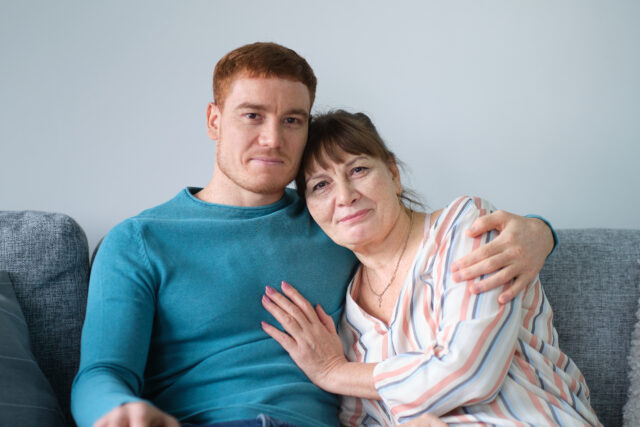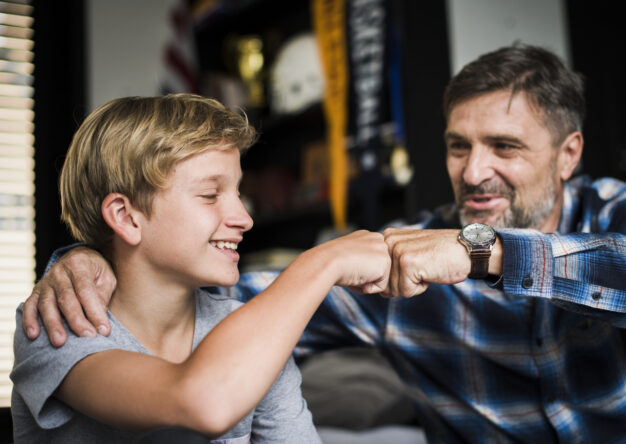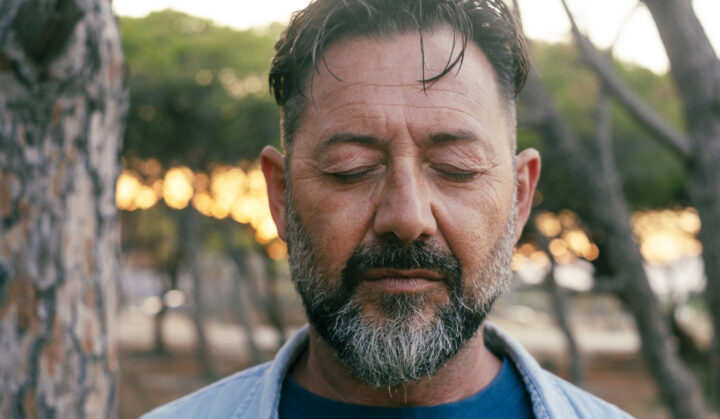If you were the one who smoothed over arguments, distracted people from tension, or held back your own feelings to keep the peace, that role doesn’t disappear just because you’re grown up.

It often shows up in subtle ways—in conversations, habits, or even how you respond to drama that isn’t yours. These small behaviours might not seem like much at first glance, but they quietly reflect a childhood spent managing emotions that weren’t yours to carry. If these feel familiar, you probably weren’t just part of the family dynamic—you were trying to hold it all together.
1. You instinctively read the room before speaking.

You don’t just walk into a space and talk—you scan. You notice who’s tense, who’s irritated, and who’s about to start something. It’s not conscious anymore; it’s just how your brain learned to operate. That hyper-awareness developed because you had to be ready to soothe or dodge conflict at a moment’s notice. Now, even in calm environments, you still find yourself adjusting to everyone else’s mood before considering your own.
2. You downplay your emotions so that other people don’t feel uncomfortable.

If you’re upset, you might say you’re “just tired.” If you’re frustrated, you might turn it into a joke. You’re used to softening your feelings to keep the energy around you light and manageable. This is usually rooted in a fear that your emotions might make things worse. So instead of expressing them fully, you shrink them down into something subtler—something safer.
3. You feel responsible for other people’s discomfort.

When someone else is upset, your first instinct is to fix it—even if it has nothing to do with you. You step in, smooth it over, and carry the emotional weight like it’s yours to solve. The thing is, emotional over-functioning usually begins in childhood, when the mood of the house felt like your responsibility. Now, you carry that pressure into friendships, relationships, and even the workplace, often without realising it.
4. You interrupt conflict with humour or distraction.

You’ve mastered the art of changing the subject when things get tense. A well-timed joke, a change in tone, a quick “anyway”—you can turn the emotional temperature down without anyone noticing. It’s a survival skill that probably kept the peace more times than you can count. But over time, it also taught you that real conversations are dangerous, and that silence or avoidance is safer than saying what’s true.
5. You’re more comfortable being neutral than taking sides.

Even when you have strong opinions, you often hold them back, especially if you think sharing them will create division. You default to neutrality, even when you know someone’s clearly in the wrong. It’s not because you’re indecisive; it’s about being trained to avoid escalation at all costs. Being the peacemaker meant valuing harmony over honesty, even when that came at your own emotional expense.
6. You often feel like the “calm one” in every group.

People describe you as grounding, level-headed, or steady. You’re the one people come to when they need to vent or calm down, but rarely the one who gets to fall apart yourself. That identity is built from years of having to stay composed for the sake of everyone else. While it’s comforting to other people, it can leave you feeling emotionally invisible.
7. You minimise your own needs without thinking.

You’ll cancel something for someone else, say “it’s fine” when it’s not, or let your preferences slide to keep things smooth. It doesn’t even register as self-sacrifice—it just feels normal. The automatic downplaying of your own needs likely started early, when asking for too much risked conflict or disapproval. Now, it shows up as self-neglect masked as being “easygoing.”
8. You feel intense guilt for setting boundaries.

Even when you know a boundary is healthy, actually enforcing it fills you with dread. You worry about how it will affect other people, if they’ll be upset, or if you’re being unfair just for protecting your peace. Peacemakers are used to absorbing discomfort rather than causing it. So when you finally do draw a line, it feels unnatural, like you’re betraying the very role you were trained to fill.
9. You try to prevent conflict before it even happens.

You pre-emptively phrase things to avoid being misinterpreted. You go out of your way to make sure no one’s left out. You notice when two people aren’t vibing and start strategising how to diffuse it—before anyone else even notices. That kind of preemptive peacekeeping is rooted in anxiety. It’s not about control; it’s about keeping things emotionally safe because deep down, you’re still carrying the burden of being the one who has to hold the emotional balance.
10. You find it hard to trust that someone else can handle it.

Letting someone else manage emotional tension feels risky. You’re so used to stepping in, guiding the mood, or softening the blow that sitting back feels almost irresponsible—even when it’s not your issue to solve. That mistrust isn’t about arrogance, it’s about history. When you’ve been the emotional anchor for too long, you stop believing anyone else will step up, so you never stop stepping in.
11. You apologise for things that aren’t your fault.

If there’s a miscommunication, a delay, or even just an awkward silence, you jump in with an apology. It’s automatic, like a reflex designed to smooth out the moment, even if you had nothing to do with the problem. This behaviour usually starts young, when apologising was a way to prevent further conflict. The longer it goes on, the more it becomes a script you follow even when you’re not actually to blame.
12. You feel responsible for everyone enjoying themselves.

At group gatherings, you check in with everyone. You worry when someone’s quiet. You overthink whether the vibe is off, even if no one else seems bothered. It’s like you’ve appointed yourself the emotional host. That emotional caretaking role is hard to turn off. You’re not just there to participate—you’re scanning the whole room to make sure everyone feels okay because that’s what you’ve always done.
13. You secretly resent how much you carry, but feel guilty saying so.

There’s often a quiet resentment that builds up when you’re the one holding it all together—but voicing it feels wrong. You tell yourself you should be proud, that you’re strong, that it’s not that bad. However, underneath the composure is someone tired of being the glue. Someone who longs to be supported, seen, and cared for in the same way they’ve done for everyone else—without guilt or performance.




